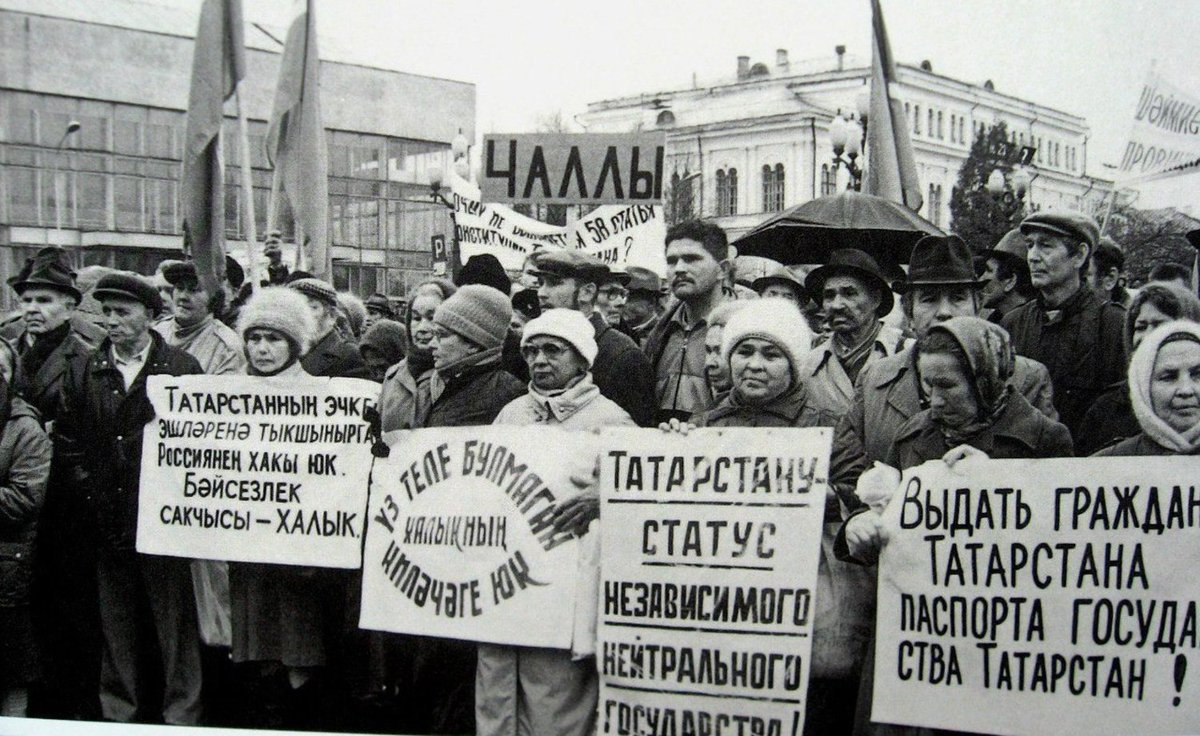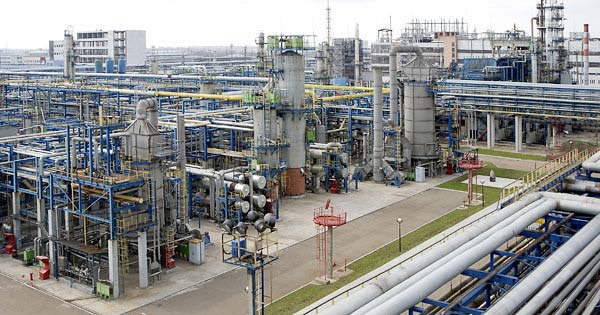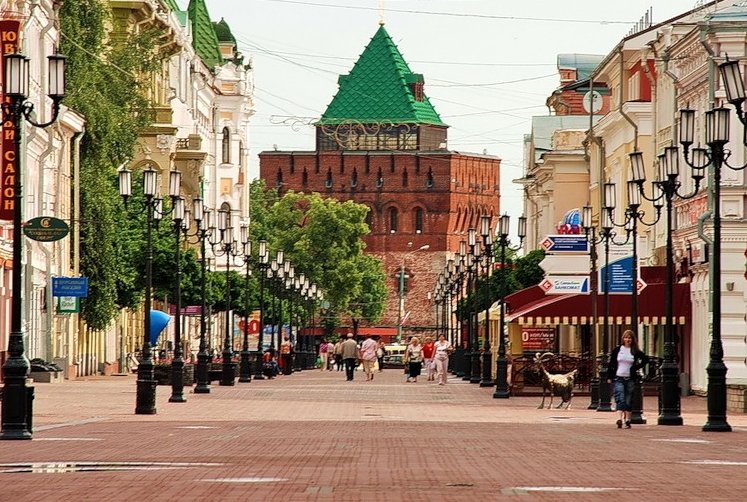Kremlin may not have a grey cardinal. But it has a bald engineer. The Kinder Egg is a major architect of Putinism. In 1998 he made Putin the FSB Chief. In 2000s he dismantled the regional autonomy imposing the centralised rule. Now he manages Putin's domestic policy and Ukraine🧵 

Sergey Kirienko was born as Sergey Israitel in a mixed Russian-Jewish family. After the divorce his mother changed his surname from father's "Israitel" to her own "Kirienko". That could be a pragmatic decision. A boy with a Slavic name would have better career chances in the USSR 



In childhood Kirienko lived with his mom in subtropical Sochi. Here he started the bureaucrat career as a Komsomol manager (комсорг) of his high school class. NB: the role of Komsomol in Soviet to post-Soviet transition is underrated. Komsomol management were its main benefactors 

After finishing high school he went to the uni in Nizhny Novgorod, majoring in shipbuilding. By coincidence his dad was leading a sub-department (кафедра) at the same shipbuilding department (факультет). Of course he presided over the department Komsomol Committee in uni as well 

After the uni he served in the army for two years. This may be an indication that he wasn't recruited by the KGB back then. Indeed, Kirienko was a descendant of the minor Soviet nobility and the KGB wasn't really allowed to recruit nomenklatura kids as their informers or agents
In 1986 Kirienko becomes a foreman at the shipyard Krasnoye Sormovo in Nizhny Novgorod. But he was more interested in a bureaucratic Komsomol career than in production processes. In 1987 he becomes a "liberated" [from work] full time Komsomol secretary at the shipyard 

Perestroika gave Komsomol managers lots of new financial opportunities and Kirienko couldn't miss them. He becomes a Komsomol supervisor of NTTM centres. NTTM = Center for Scientific and Technical Creativity of the Youth. Unbelievably lucrative position by the late 1980s 

Kirienko, @mbk_center and so many of the Russian elite came from the NTTM. Why? In 1988 NTTMs got the right to cash out the non cash money, making it the unique place for plunder. In order to get how it happened, you must understand Soviet monetary system
https://twitter.com/kamilkazani/status/1513681985645907971
Kirienko went into business becoming a criminal entrepreneur in Nizhny Novgorod. In 1991 for example he sent gangsters to beat a businessman Abuladze and threaten to kill him unless he relinquishes control over a tennis court on Timirazeva Street flb.ru/infoprint/7217… 

Kirienko was also known for his interest in scientology. When leading a local bank he sent his employees to do courses in a Hubbard College evolkov.net/cults/scientol… That created some controversy once he became the PM independent.co.uk/news/russia-s-…
Through his business activities Kirienko became close to the governor of Nizhny Novgorod Nemtsov. In 1997 Nemtsov became the Deputy PM of Russia and simultaneously the Minister for energy. Nemtsov takes Kirienko to Moscow and makes his deputy. Kirienko joins the government 

In Moscow Kirienko begins his incredible rise:
13.05.1997 Deputy Minister for Energy
20.11.1997 Minister for Energy (instead of Nemtsov)
23.03.1998 President Yeltsin appoints him as an acting PM
He was only 35 and a noname. Journalists called him the "Kinder surprise"
13.05.1997 Deputy Minister for Energy
20.11.1997 Minister for Energy (instead of Nemtsov)
23.03.1998 President Yeltsin appoints him as an acting PM
He was only 35 and a noname. Journalists called him the "Kinder surprise"

Parliament which used to have some agency back then refused to confirm him twice. Third time they agreed though. According to the Article 111 of the Constitution, if Parliament refuses to confirm the President's candidature for the PM three times in a row, it сan be dissolved
Why was Kirienko chosen as a PM? Probably as a scapegoat. Russia was spiralling into a massive crisis and someone had to be held responsible for that. A Ponzi scheme of government short-term obligations ГКО was to blow up soon and someone had to be sacrificed. Why not him? 

During his short PM service, Kirienko made a decision of a crucial importance. He appointed Putin as the new FSB Director: chief of the state security. It was ofc done by the President's order. But Yumashev's memories mention that it was Kirienko who lobbied Putin's candidature
Putin later recalled:
"I'm sitting in my office. There's a call from Yumashev [Yeltsin's son in law and Presidential Administration Chief]:
- Can you to to the airport, meet Kirienko?
- Yes
"What has happened?" - I wonder. I was concerned something went wrong
"I'm sitting in my office. There's a call from Yumashev [Yeltsin's son in law and Presidential Administration Chief]:
- Can you to to the airport, meet Kirienko?
- Yes
"What has happened?" - I wonder. I was concerned something went wrong

Kirienko is coming out of the plane:
- Volodya, I congratulate you!
- With what?
- The executive order is signed. You are the FSB director
That's how Putin got the control over the state security. Kirienko 1) made decision 2) personally informed Putin of it 3) introduced him
- Volodya, I congratulate you!
- With what?
- The executive order is signed. You are the FSB director
That's how Putin got the control over the state security. Kirienko 1) made decision 2) personally informed Putin of it 3) introduced him

The GKO state obligations Ponzi scheme bursted soon. Kirienko wasn't really responsible for crisis but he was appointed as a scapegoat. One day before Russia declared the default he tried to resign. President didn't allow him to. Five days after the default he just fired him 

Kirienko suffered a catastrophe. After becoming the youngest PM in Russian history at just 35, he lost everything. He tried to run for a mayor of Moscow, but unsuccessfully. Tried to launch his own party (the SPS), but with limited success either. His career seemed to be over 

It was the Putin's succession that made Kirienko's fortune. First of all, Putin never forgot a man who made him the FSB Chief. Second, with Putin's succession rules of game changed. Public politics were over, and the era of management and technocracy commenced. Kirienko loved it 

In 2000 Putin started to reorganise the country dismantling the regional autonomy and imposing the centralised rule. The problem was that many regions were run by independent governors, who didn't fully submit to the new regime. They needed to be put in line 

In order to put governors in line, Putin invented the new institution: the Federal Districts. The country was divided into the Federal Districts, each run by the appointed Presidential Plenipotentiary who was responsible for aligning the elected governors with Kremlin's policy 

Kirienko was appointed to the very difficult Federal District: the Volga. It included a few ethnic republics, including two very problematic ones - Tatarstan and Bashkortostan. They were both less than enthusiastic about bending the knee. Largely because they were rich 

Tatarstan was especially problematic from the Moscow standpoint. In 1992 it refused to sign the Federation Treaty (like Chechnya) and launched a referendum on sovereignty. 61% voted for, so Tatarstan was proclaimed a "sovereign state associated with Russia" rather than a province 

Kirienko immediately got into conflict with the Tatarstan President Shaymiev. The latter repeatedly refused to meet Kirienko (unless he comes with Putin). That was a demonstration against Kirienko himself and also against the entire institution of Presidential Plenipotentiaries 

Kirienko was a centraliser and thus the enemy of the regional elites. His position of a Moscow appointee shaped his policies. And yet, back in the 2000s he weaponised the "liberal" rhetorics in his centralising crusade. For example, he accused Tatarstan of "state capitalism" 

"In many economic respects Tatarstan Republic is acting as the Tatarstan, Inc. It plays by the market rules with the outside world, and by non-market rules inside. For example, in petrochemical industry enterprises have to sell raw materials to refineries at below market prices" 

It's a good illustration of how the Moscow elites would weaponise whatever fashionable rhetorics in their quest to grab more powers. Back in the 2000s economic liberalism was fashionable, so they would present themselves as the true market-oriented force. Rhetorics don't matter 

While Tatarstan could (initially) resist Kirienko's encroachment, his home Nizhny Novgorod couldn't. He made Nizhny his capital in the region and yet, acted here as a coloniser. He helps Moscow companies to appropriate local industry, creating the absentee landlordism system 

In 2005 Kirienko was appointed as the CEO of Rosatom, the state Nuclear Corporation. This should be interpreted in historical context. In the 1990s Soviet military industrial complex was in disarray. Most facilities became independent (but in ruins) 

In 2000s Putin reorganised the military industrial complex uniting the plants into vertical integrated holdings. Rostec - the key military producer. KTRV - tactical missiles. Almaz Antey - air defence. Roskosmos (created later) - ballistic missiles. Rosatom - nuclear warheads 

NB: *all* of these corporations have both civilian and military production. That's the legacy of Soviet industry which was initially built as dual use. Rosatom has civilian production, too (e.g. nuclear power plants). But it has huge military importance for the deterrence system 

On his position, Kirienko became known as not bad manager. Don't take me wrong, he's not brilliant. He'd never be able to build a complex company himself. But at least he was able not to destroy the one he was appointed to. That's something. That makes him better than many others 

Kirienko was unhappy about the Rosatom job, seeing it as an exile. In 2016 he had a chance to return to Kremlin, as the Deputy Head of the Presidential Administration. On this position, Kirienko concentrated power far exceeding the one of his better known predecessors like Surkov 

Until 2022 Kirienko didn't invest much in his PR, preferring to stay in shadow. I would thus argue that his role is underrated, he's a key player of the late Putinism and one of the major driving forces behind this war. But I'll cover it next time. The end of 🧵 

• • •
Missing some Tweet in this thread? You can try to
force a refresh





